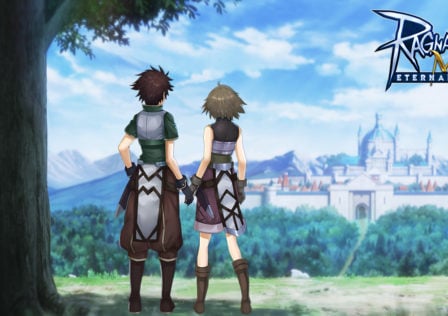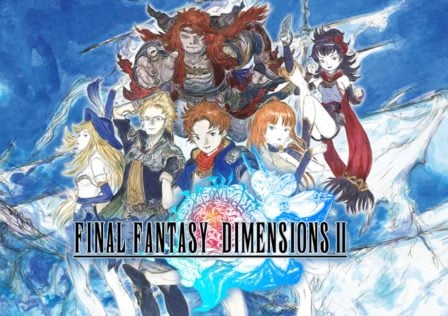For those unfamiliar with Indie developer Vector Unit, you might have come across their popular Android title, Riptide, GP (read our review here) and recently released Shine Runner (review here) which introduced gamers to realistic racing in incredible water physics. While starting out on consoles, Vector Unit brought the same hard hitting quality and fun gameplay to our devices.
Recently, we had the chance to speak to Matt Small, the Creative Director at Vector Unit who gives us insight on developing for Android, Tegra 3, piracy and the future of Vector Unit!
You’ve recently released Shine Runner, with a humorous environment. What made you stray from the serious racing genre to a more comedic route?
Shine Runner is a game that we have been thinking about doing ever since we worked on Blood Wake on the original Xbox. We wanted to do something with more character, and we knew the game was going to be a little bit ridiculous with all the smashing and crashing, so the humor just kind of flowed out of that. I guess moonshine and rednecks are just naturally funny.
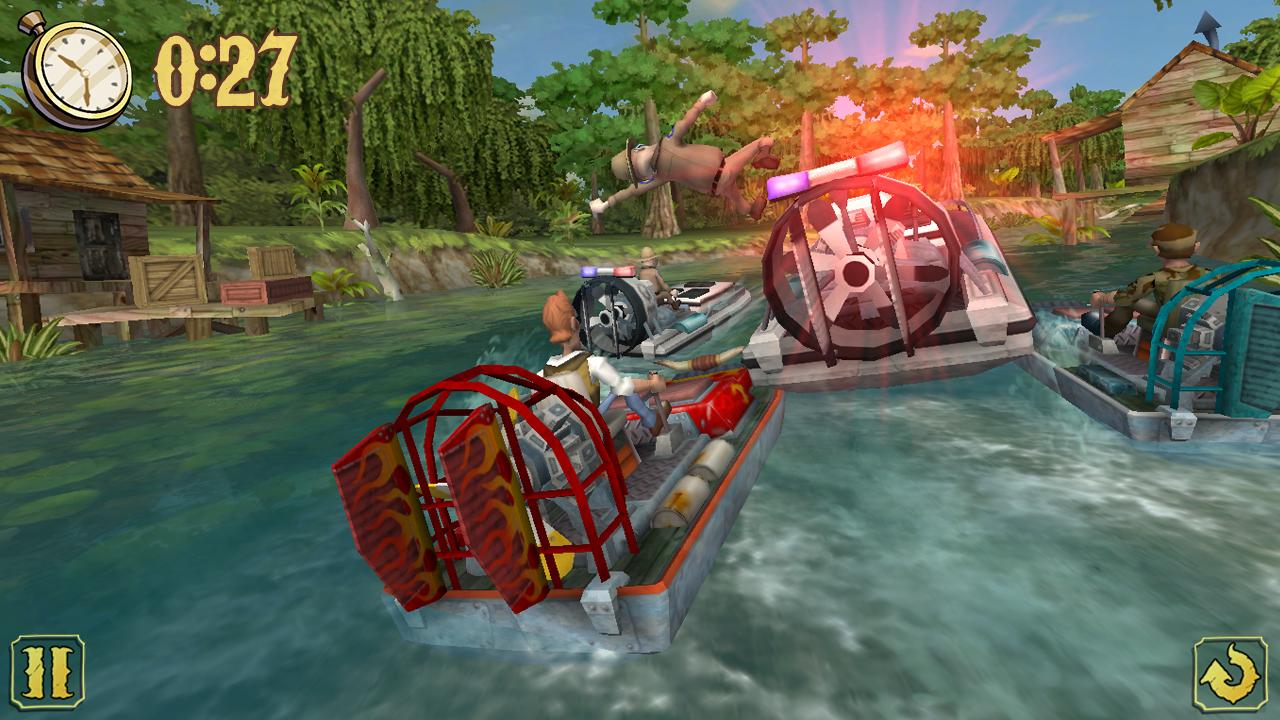
Shine Runner introduced a 10 day race that ends, well, after 10 races. Why did you choose this mechanic instead of a whole “career”?
I like to think Shine Runner is kind of like those classic arcade games like Pac Man or Galaga, where you play through and just try and get as high a score as possible, and then when it’s over you put in another quarter and try and beat your score. We wanted it to be really simple and fun, so we decided not to complicate it with a lot of customization options. And we wanted it to be kind of short so you could play through a whole game and get a final score within about 15 minutes. When you have a low score you haven’t invested too much in it, you can just jump back in and try again for a higher score.
When Tegra 2 was first released people were very impressed with Riptide GP’s visuals, was it difficult shifting development from consoles to mobile device?
It was a challenge moving from Xbox 360 to tablet, even a tablet as powerful as the Tegra 3. The CPU is very powerful, so it was able to handle our physics code fine, and it can draw a lot of polygons, so we could use pretty high res models. But the GPU isn’t quite at the level where it can handle all the crazy complicated shaders we used on Hydro Thunder. So we had to optimize those a lot.
Also, Riptide GP was our first experiment with touch screen and tilt controls. We always put a lot of work into tuning our physics and controls, because if that part is no good the rest of the game is sunk, no matter how good it looks. So it took us some time to tune the tablet/phone controls to get them feeling just right.
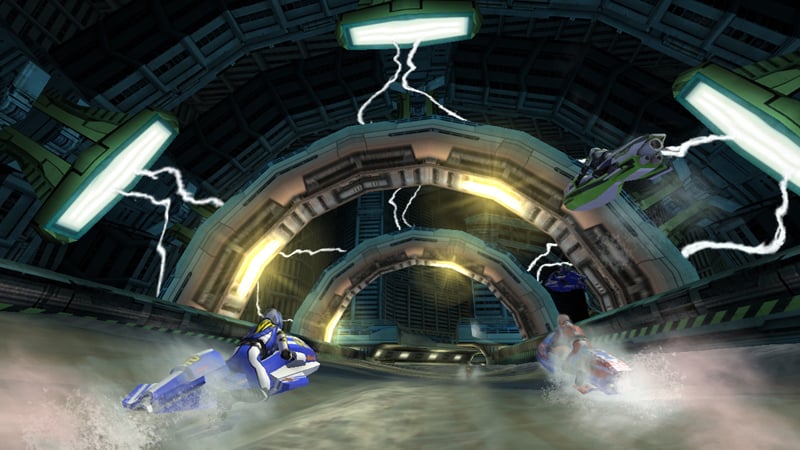
Concerning your two releases for mobile phones and tablets, will Vector Unit be focusing more on mobile gaming than consoles? Will you go back to consoles anytime soon?
We like working on consoles, but we’re really excited about the prospects of mobile gaming. Shine Runner is the first game we’ve done that was entirely self-funded; I don’t think that would be possible right now on console, since it’s a lot more expensive to make a console game, even for XBLA. Also the approvals process is harder on console — you have to get a publisher to support you.
I’m hoping that in the next generation of consoles they’ll develop marketplaces similar to the Android Market or App Store where anybody can publish a game to the store, and the best games rise up to the top. That will bring a lot of developers like us back to the console.
Shine Runner was released simultaneously on iOS and Android. Since Android has a number of devices under their belt, was it difficult to accommodate all these devices?
That’s probably the hardest thing about working with Android. There’s a fair amount of overlap between devices, and you can filter out older devices in the Market, but there are still little differences here and there that take testing and time to sort out. When the Droid Bionic first came out, we found out our game didn’t work on it. So we had to go to the store, buy a Bionic, take it back and test on it to find out what was wrong — we were able to release a patch pretty quickly, but … yeah, it’s a little bit of a pain to deal with the fragmentation. Unfortunately because we’re a small team we can’t support every single device that has problems, so we have to concentrate on the most popular ones.
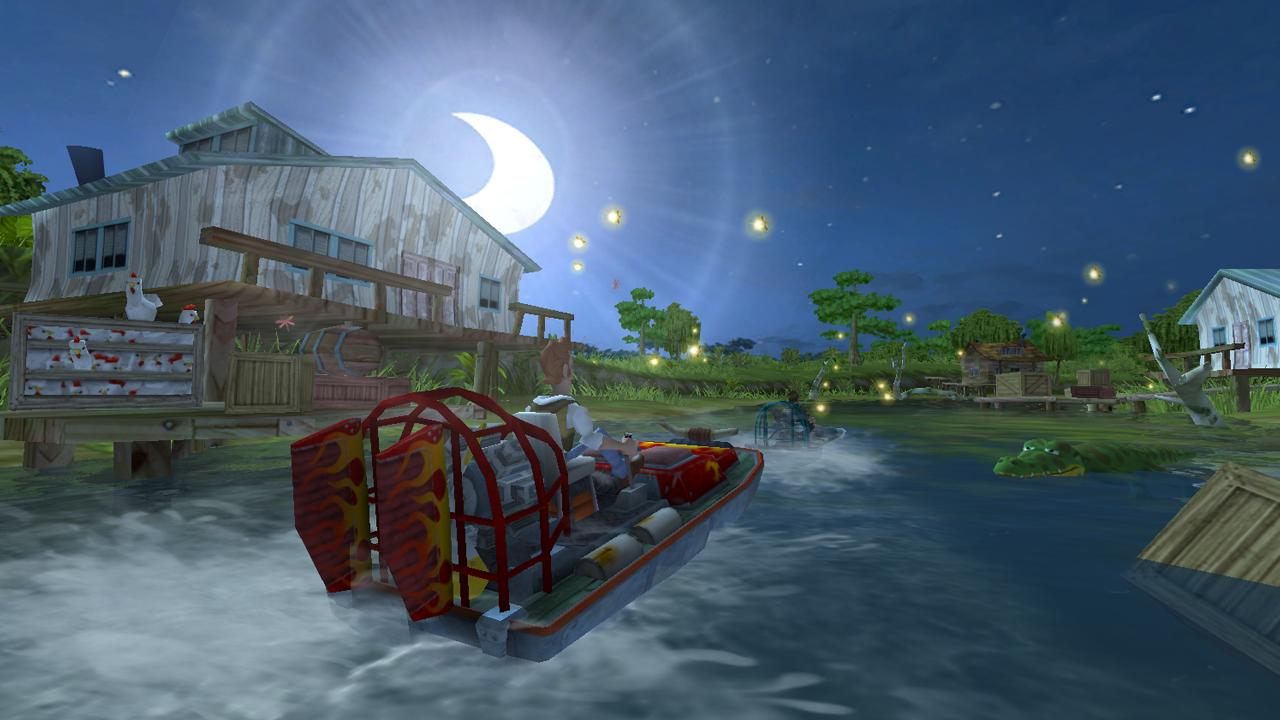
As a developer, what’s the most challenges you face when creating a game for Android?
As a small developer, the biggest challenges have to do with marketing — how do you get people to know about your games when you don’t have a lot of money to spend on advertising? There are really great games out there that just kind of languish in the Market because nobody knows to look for them. We try to get word out virally as much as possible, by making announcements through Facebook and the Android blogs. Also NVIDIA helped us a lot with Riptide GP — they’ve promoted the game like crazy when they do demos for Tegra 2 and now Tegra 3.
As an Indie studio, do you think you can reach out to more audience through mobile gaming?
Well the audience for mobile gaming is a lot bigger than the audience for console gaming. Coming from a console background, we’re still working out what kinds of things mobile gamers like and don’t like. But yes, I think we can reach a much bigger audience potentially.
Also I like it that mobile gamers are very engaged. We read through all the emails we get, and the comments in the Market, and posts on our Facebook and G+ pages, and try to respond to all of them, or as many as we can. It’s a very direct connection, it reminds us that we’re making the games for real flesh and blood people, and the feedback helps make our games better!
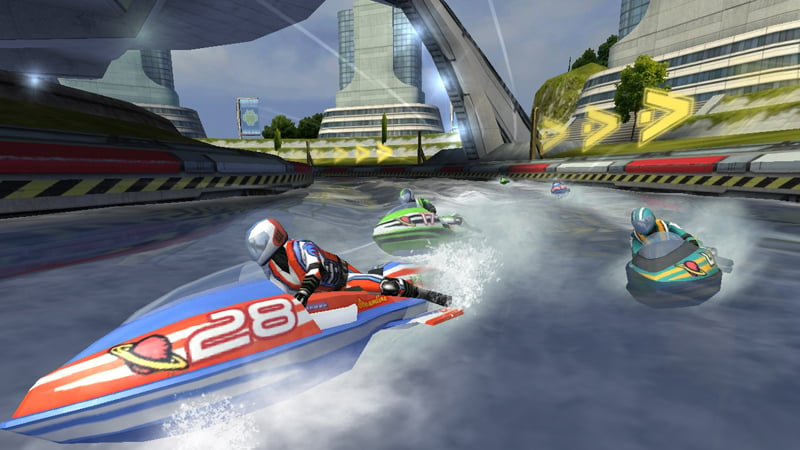
Most developers have jumped on the “freemium” wagon to reach more audiences. Will Vector Unit go the same way?
We are probably going to explore freemium in the future. It’s a little scary because there’s a whole strategy of design for free to play that is totally new to us, but you can’t argue with success. When you look at the top grossing games, almost all of them are “free”. I think we’ll try at least and see how it goes, but it has to be the right fit for the right game.
Most iOS developers seem to shy away from Android due to concern over piracy, what would advice would you give them and how do you cope with it?
First of all, I would say that we track our piracy numbers and they are almost exactly the same on iOS and Android. That actually surprised us — we heard all the talk and expected Android to be a lot worse than iOS.
Ultimately there’s not a ton we can do about it. The thing I’d like people to understand is, when you pay $1.99 or $4.99 or $.99 for a game, it’s not just about paying for a few hours of entertainment (pretty cheap too, compared to a movie or something). It’s about supporting small studios to make more of the kind of games you enjoy. It’s about voting with your dollars and encouraging developers to keep doing what they do. If you don’t like it, well whatever you can get a refund. But if you like it, you should pay for it. If everybody pirated games, eventually people would just stop making them
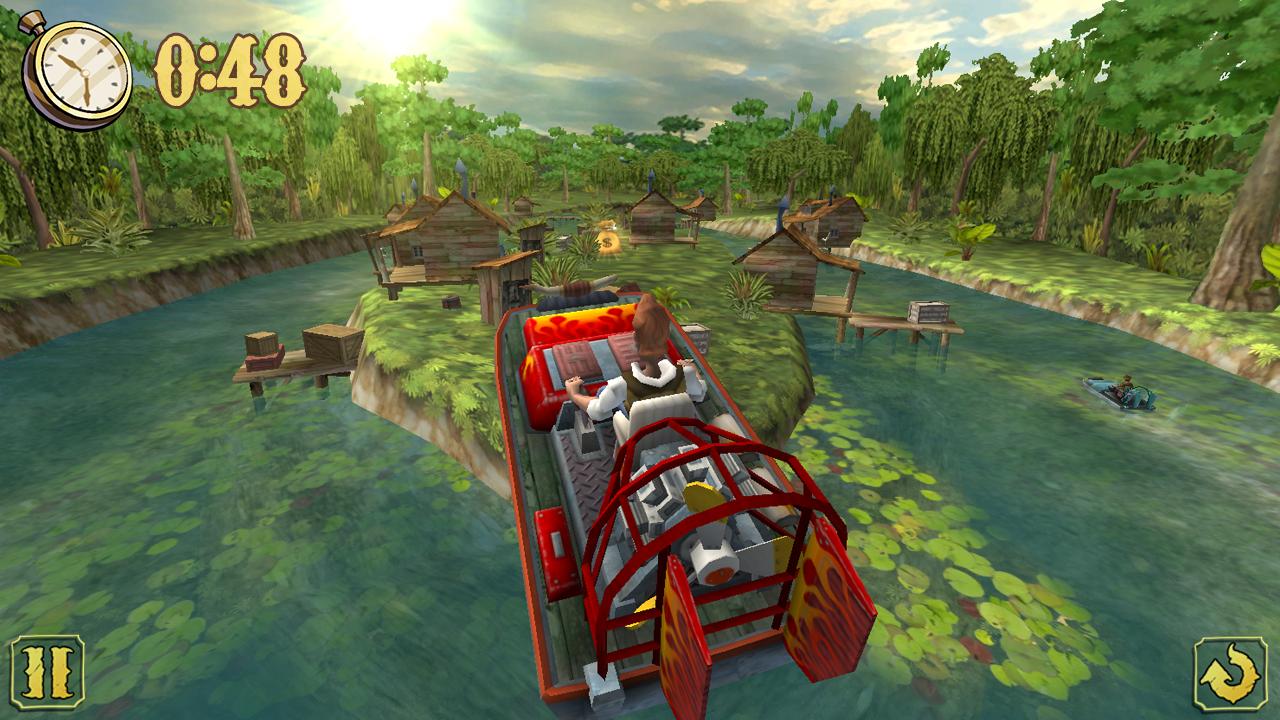
All your games are based on water, what have you learned that carries on all games?
Ha, yeah currently all the games we’ve done have been water based. (Actually that’s changing — our next game is not going to be on water.) But there are definitely consistent lessons we’ve learned that apply to all games. Especially for mobile you need to make the game easy to pick up and start having fun right away without having to read through a ton of instructions or anything. But there also has to be enough depth and strategy there to make it rewarding for people who get into it.
With the announcement of Tegra 3, many developers are jumping aboard and announcing a number of games. Asides from the great update to Riptide does Vector Unit have any plans for Tegra 3?
Definitely. We’ve already released upgrades for Riptide GP and Shine Runner that take advantage of the Tegra 3 graphics. And our next game is going to have a lot more emphasis on physics and dynamic objects, so we can really take advantage of the quad-core CPUs. It’s amazing how fast phones and tablets are advancing, even in the year that we’ve been working on mobile. The next few years are going to be really exciting — it really won’t be long before the phone you carry around in your pocket is every bit as powerful as a current gen console.
We would like to thank Vector Unit and Matt Small for taking a time out of their busy day and wish them luck!



